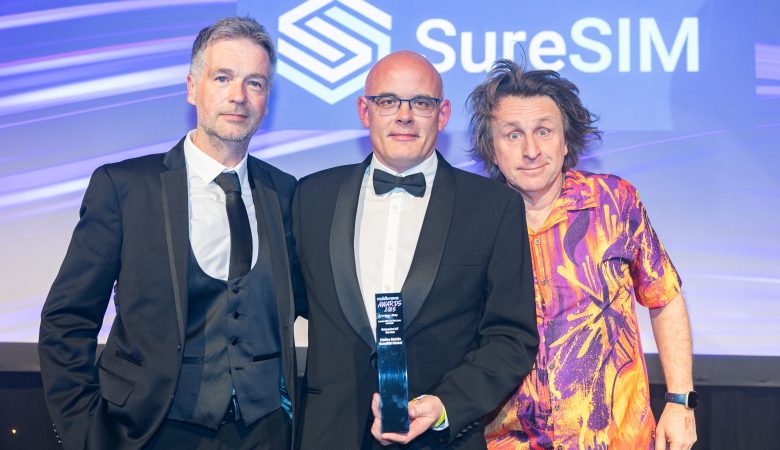User-centred design is revolutionising the way Manchester startups approach innovation and technology. Scott Dylan, a prominent figure in venture capital, is a key player driving this transformation. His leadership at Inc & Co has shown how focusing on user experience can fuel growth for new companies.
By putting users at the heart of product development, Manchester startups are not only meeting but exceeding user expectations. With Scott Dylan‘s guidance, these companies are leveraging advanced technology to create more flexible, digitally connected business models. This strategic focus on user needs is helping startups stand out in a competitive landscape.
Dylan‘s vision for Manchester extends beyond technology; he sees it as a hub where innovation and user-centred design intersect. This approach is making the city a fertile ground for smart cities startups, marrying urban planning with cutting-edge tech. Through fostering an environment ripe for innovation, Manchester is quickly becoming a model for sustainable and liveable urban development.
The Foundation of User-Centred Design in Manchester’s Startup Ecosystem
User-Centred Design (UCD) is revolutionising Manchester’s startup scene by focusing on user research, data analysis, and creating interfaces that meet user needs. Understanding these key elements is crucial for startups aiming for success.
Understanding User-Centred Design (UCD)
User-Centred Design (UCD) places the user at the heart of the design process. In Manchester, startups are leveraging UCD to create products that are accessible, inclusive, and user-friendly. By prioritising the user experience, these startups ensure their products resonate with their target audience, increasing satisfaction and loyalty. This approach involves continuous feedback and iteration, helping startups refine their products based on actual user needs and behaviours.
The Role of User Research and Data
Understanding users is essential for effective UCD. Manchester’s startups employ comprehensive user research techniques, such as interviews and surveys, to gather data. This research helps identify user needs, pain points, and preferences. By analysing this data, startups can make informed design decisions. Empathy plays a significant role here, as understanding user frustrations and successes leads to better solutions. Data-driven insights ensure that products are not only functional but also delightful to use.
Crafting Interfaces for User Needs
The design of user interfaces is critical in UCD. Startups in Manchester focus on creating interfaces that are intuitive, usable, and accessible. This means considering factors like readability, navigation, and responsiveness. Inclusive design is also a priority, ensuring interfaces cater to users with diverse needs and abilities. By crafting interfaces that align with user expectations, startups enhance the user experience, making their products more competitive in the market. Effective interfaces foster engagement and reduce user errors, driving overall success.
Driving Startup Success Through User-Centred Innovation
Investing in user-centred design can significantly boost startups in Manchester. By putting user needs at the forefront, startups can create more engaging and satisfying products. This drives success through continuous prototyping, user feedback, and fostering trust with inclusive design.
Iterative Design and Prototyping
Startups benefit from an iterative design process, enabling them to refine their products through continuous feedback loops. Involving users early and often, teams develop prototypes to test usability and gather insights. This approach helps align the product with the expectations and behaviours of end-users, ensuring the final product meets real needs.
Examples in Manchester show that startups adopting this method adapt quickly to market changes. Frequent iteration and testing allow for swift adjustments, reducing the risk of costly errors later. The iterative design fosters collaboration among designers, developers, and stakeholders, resulting in a cohesive and user-friendly product.
Measuring User Satisfaction and Engagement
User satisfaction and engagement are critical benchmarks for a product’s success. Startups employ various techniques to measure these metrics, such as user interviews, surveys, and usability testing. By monitoring how users interact with their products, startups can gauge usability and identify areas for improvement.
For instance, user personas help startups understand diverse user groups, tailoring the experience to different needs and behaviours. Data collected through engagement metrics, like click-through rates and session durations, provides actionable insights. High engagement often correlates with user satisfaction, indicating that a product resonates well with its audience.
Building Trust with Inclusive and Accessible Design
Trust is built through inclusive and accessible design, ensuring that products cater to a wide range of users, including those with disabilities. Startups ensure their design considers various perspectives, fostering inclusion and accessibility from the ground up.
Empathy plays a crucial role in this process. By understanding and addressing the barriers faced by different user groups, startups build products that are not only functional but also equitable. Accessible design enhances user trust and loyalty, as it shows a commitment to meeting the needs of all users, cultivating a more extensive and diverse user base.
Implementing these practices helps Manchester startups create products that users love and trust. By focusing on user-centred design principles, they can build innovative and successful products that stand out in a competitive market.




